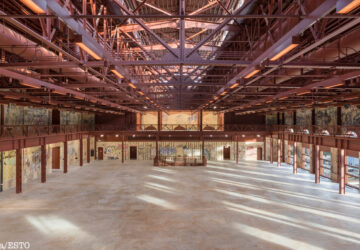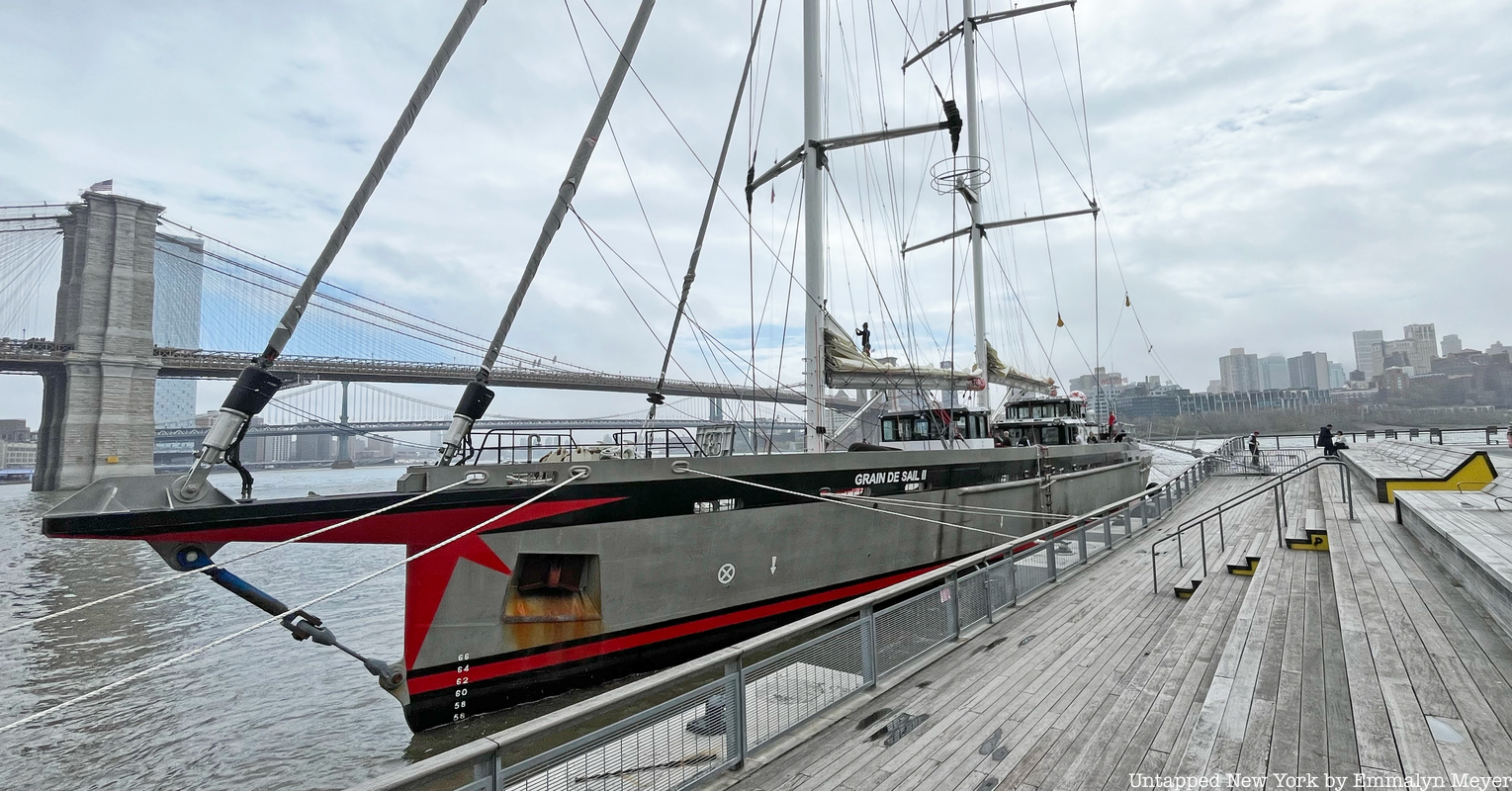At Pier 17 in the South Street Seaport, New Yorkers can find the world’s largest cargo sailboat, Grain de Sail ll. The wind-powered ship arrived in New York on Wednesday with 350 tons of goods. Everything from Grain de Sail brand fine chocolates and organic coffee to cosmetic products, wine, and French fashion house luxury goods were on board.
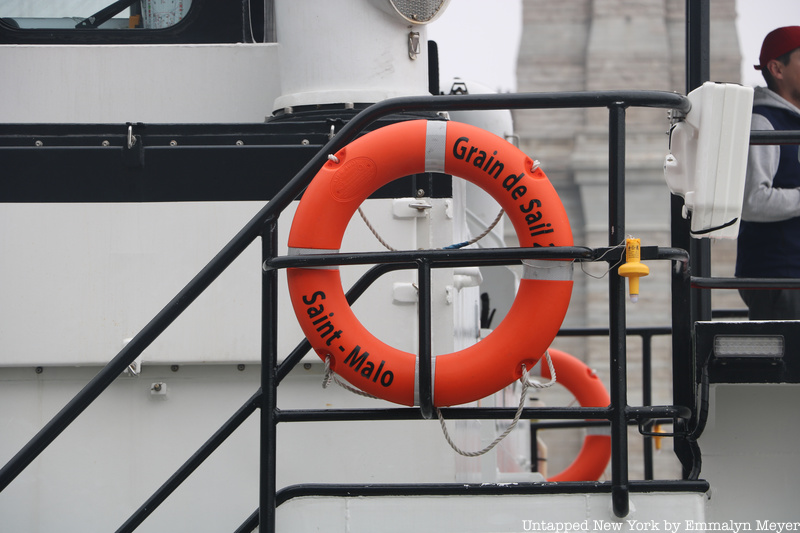
“The best knowledge of what France is able to do is on this vessel,” said Jacques Barreau, CEO and Founder of Grain de Sail in France. Grain de Sail ll is the newest member of the company’s fleet of cargo sailboats. It stretches 52 meters, more than twice as long as its predecessor. It can travel to New York from Saint-Malo, France in about 18 days.
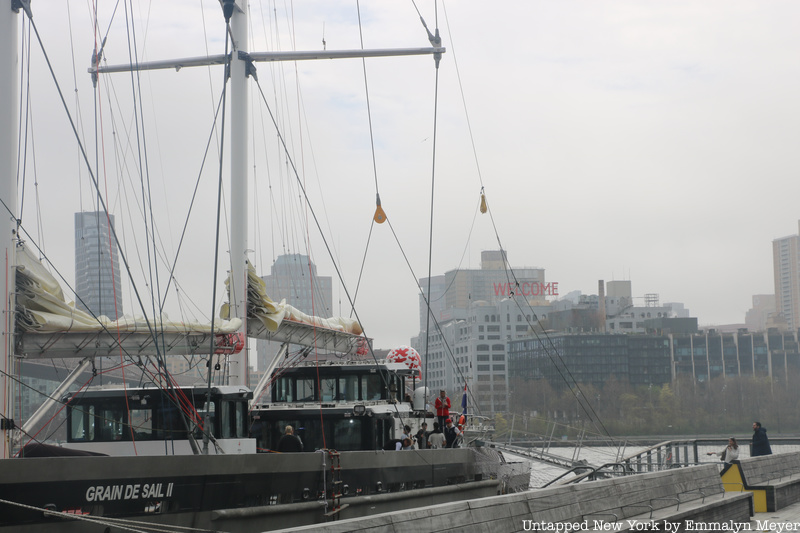
Grain de Sail’s cross-Atlantic voyages rely entirely on wind energy. The company’s mission is to empower zero-emission shipping with “retro-innovation,” blending ancestral technology with modern technology. This commitment to low emissions provides sustainable shipment options for Grain de Sail’s coffee, cacao, and wine brands, and other businesses that can now ship their products without contributing to worldwide maritime shipping’s global CO2 and methane emissions.
Compared to traditional cargo shipping, the process of unloading goods from Grain de Sail vessels averages about five days faster. This is because the sailboats have cranes directly on the deck. Thus, they can avoid harbor congestion and the long, strenuous process. Instead of taking 30-35 days to unload, Grain de Sail vessels take about 20 days.
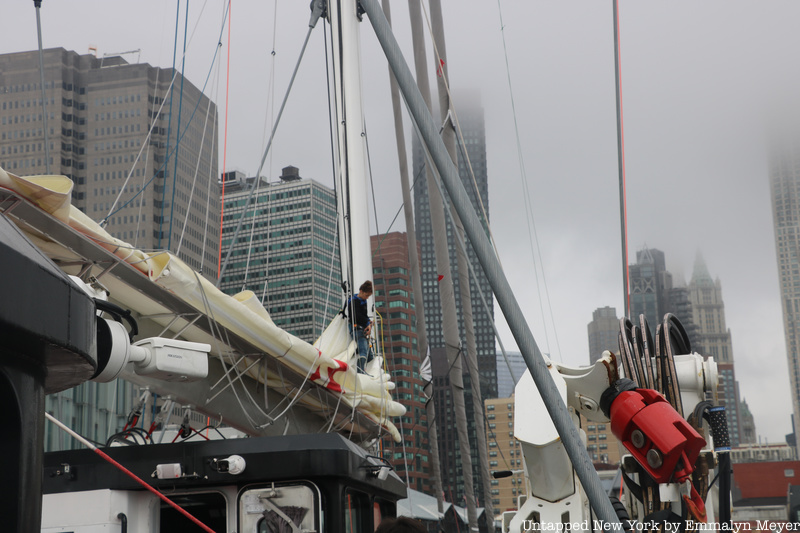
Grain de Sail was founded in 2010 by two twin brothers, Olivier and Jacques Barreau, who are renewable energy experts from France. The company’s inception stemmed from its goal to reduce the carbon footprint of maritime transportation. Wind is a reliable, savvy alternative to the high environmental costs of fossil fuels. Grain de Sail also emphasizes its promise to preserve the quality of goods, so you’re introduced to one of the only floating wine cellars. To properly maintain the quality of the bottles, the vessel is fitted with temperature and humidity control features.
“We must shift our focus on the quality rather than quantity,” said Barreau. “We must change our mindset to products that last longer and generate less pressure on the environment.”
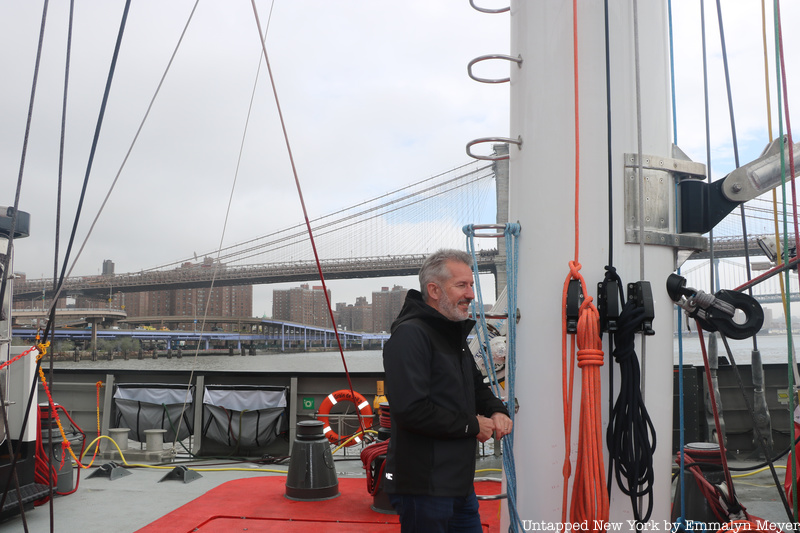
In New York City, several retailers sell goods delivered from the Grain de Sail. Not only can you support local businesses, but your conscious buying is helping to decarbonize shipping.
After the ship leaves New York City on April 15, 2024, Grain de Sail ll will return to France, loaded with various goods. This is the first load of many for the Grain de Sail ll. In total, this vessel plans to sail the seas five times a year, trekking from France to New York and then down through the Caribbean, where the sailboat will dispatch humanitarian aid, working alongside local NGOs. The sailboat will also restock its coffee and cacao supply on its journey through the Caribbean. That supply is then brought back across the sea to France, where the coffee is roasted, and fine chocolates are produced.
Next, check out The Floating Energy Lab Docked in NYC for Earth Day

